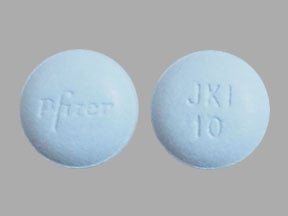
Xeljanz Coupons & Savings Card – Discount Prices from $6036.60
My prescription
Edit
10MG, Xeljanz (60 Tablets)
Select pharmacy

Walgreens
$6036.60
COUPON PRICE
Albertsons
$6227.74
COUPON PRICE
Walmart
$6619.68
COUPON PRICEXeljanz savings card
Show this card to your pharmacist
Walgreens
$6036.60
BIN
ID
PCN
GRP
015995
LHKPV526253
GDC
DR33
Powered by
Related JAK inhibitors prescriptions
More prescriptions for rheumatoid arthritis
Related JAK inhibitors prescriptions
More prescriptions for rheumatoid arthritis
Price history for Xeljanz
60 Tablets, 10MG
Average retail price for Xeljanz
Average SaveHealth price for Xeljanz
Our price history data is based on aggregated prescription data collected from participating pharmacies in America. Our prescription data updates daily to reflect the latest price changes. If you notice a missing data point, it means there wasn't sufficient data available to generate a monetary value for that date.
*Retail prices are based on pharmacy claims data, and may not be accurate when we don't have enough claims.
Xeljanz dosage forms
Dosage Quantity Price from Per unit 5MG 60 Tablets $4444.97 $74.08 10MG 60 Tablets $6227.74 $103.80
| Dosage | Quantity | Price from | Per unit |
|---|---|---|---|
| 5MG | 60 Tablets | $4444.97 | $74.08 |
| 10MG | 60 Tablets | $6227.74 | $103.80 |
What does Xeljanz do to the body?
Xeljanz works by inhibiting certain enzymes known as Janus kinases (JAKs), which play a role in the inflammatory process. By blocking these enzymes, Xeljanz helps reduce inflammation and modulate the immune response, which can alleviate symptoms in conditions like rheumatoid arthritis, psoriatic arthritis, and ulcerative colitis.
Are Humira and Xeljanz the same?
Humira and Xeljanz are not the same. They are both medications used to treat certain autoimmune conditions, but they work in different ways and belong to different classes of drugs. Humira is a TNF inhibitor, while Xeljanz is a Janus kinase (JAK) inhibitor. It is important for patients to follow their healthcare provider's recommendations regarding which medication is appropriate for their specific condition.
Which is safer, Rinvoq or Xeljanz?
The safety profiles of Rinvoq (upadacitinib) and Xeljanz (tofacitinib) can vary depending on the individual patient and their specific health conditions. Both medications are Janus kinase (JAK) inhibitors used to treat certain autoimmune conditions, and they carry similar risks, including increased risk of infections, blood clots, and certain cancers. The choice between them should be based on a thorough evaluation by a healthcare provider, considering the patient's medical history, current health status, and specific treatment needs. It is important for patients to discuss the potential risks and benefits of each medication with their healthcare provider to determine the most appropriate option for their situation.
Does Xeljanz cause weight gain?
Weight gain is not commonly reported as a side effect of Xeljanz (tofacitinib). However, individuals may experience different side effects, and any unexpected changes in weight should be discussed with a healthcare provider.
Can you take Humira and Xeljanz together?
It is generally not recommended to take Humira (adalimumab) and Xeljanz (tofacitinib) together. Both medications suppress the immune system and using them concurrently can increase the risk of serious infections and other adverse effects. A healthcare provider should be consulted to determine the most appropriate treatment plan for an individual's specific condition.
